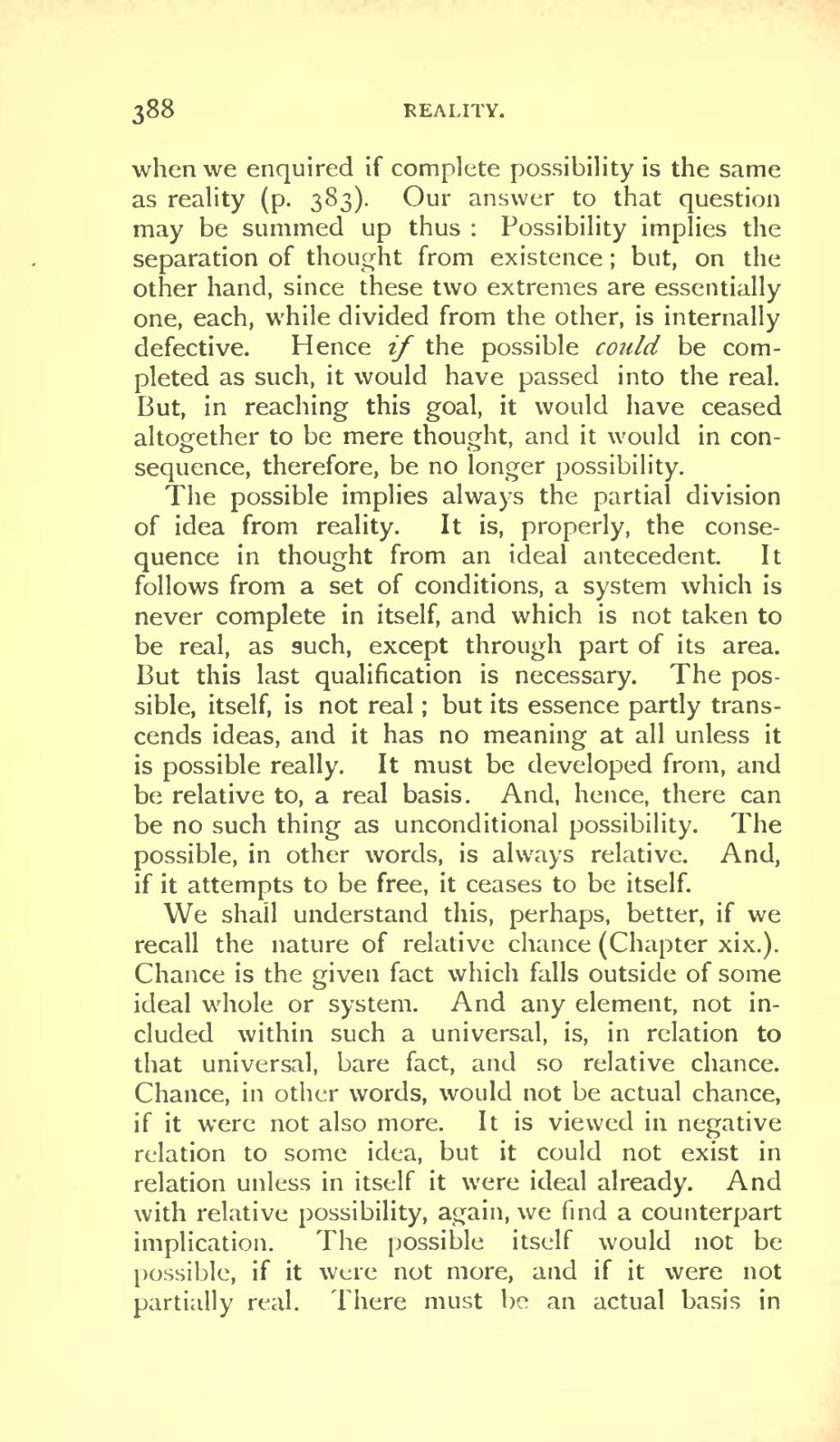when we enquired if complete possibility is the same as reality (p. 383). Our answer to that question may be summed up thus: Possibility implies the separation of thought from existence; but, on the other hand, since these two extremes are essentially one, each, while divided from the other, is internally defective. Hence if the possible could be completed as such, it would have passed into the real. But, in reaching this goal, it would have ceased altogether to be mere thought, and it would in consequence, therefore, be no longer possibility.
The possible implies always the partial division of idea from reality. It is, properly, the consequence in thought from an ideal antecedent. It follows from a set of conditions, a system which is never complete in itself, and which is not taken to be real, as such, except through part of its area. But this last qualification is necessary. The possible, itself, is not real; but its essence partly transcends ideas, and it has no meaning at all unless it is possible really. It must be developed from, and be relative to, a real basis. And, hence, there can be no such thing as unconditional possibility. The possible, in other words, is always relative. And, if it attempts to be free, it ceases to be itself.
We shall understand this, perhaps, better, if we recall the nature of relative chance (Chapter xix.). Chance is the given fact which falls outside of some ideal whole or system. And any element, not included within such a universal, is, in relation to that universal, bare fact, and so relative chance. Chance, in other words, would not be actual chance, if it were not also more. It is viewed in negative relation to some idea, but it could not exist in relation unless in itself it were ideal already. And with relative possibility, again, we find a counterpart implication. The possible itself would not be possible, if it were not more, and if it were not partially real. There must be an actual basis in
